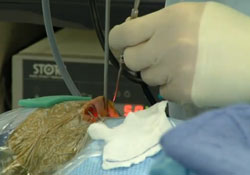
The meeting participants have officially published the Beijing Policy Recommendations, a document outlining how intercontinental cooperation can be strengthened to drive sustainable impact, with a focus on the theme, 'Contributing to Universal Health Coverage, Expanding Access to Essential Medicines'.
Drawing on decades of joint health efforts, the policy recommendations called for deepened dialogue between Chinese, African and international stakeholders, increased investments in health, and alignment with African regional and national strategies. The recommendations emphasised commitments to a variety of issues including universal health coverage (UHC) and access to safe, high-quality drugs and vaccines, as well as the need for improved government accountability through better monitoring and evaluation.
"China and Africa have a long history of health cooperation going back more than 50 years. Our partnership with Africa is focused on mutually beneficial collaboration that meets the needs of African countries while also contributing to China's health and development," said Dr Ren Minghui, Director General of the Department of International Cooperation at China's National Health and Family Planning Commission (NHFPC). "China has a unique role to play in supporting Africa's health progress, thanks to our advances in R&D and production of high-quality, low-cost medicines and vaccines. These lifesaving innovations have tremendous opportunity to make a positive impact in the developing world."
The roundtable comes at a crucial time, as China develops its integrated strategy toward other developing countries for the next 5-10 years. The meeting provides a platform for high-level consultation between China and Africa on specific health priorities of mutual interest. China-Africa collaboration on health is an important complement to investments made by African governments and aid from traditional donors, and reflects growing South-South cooperation in a number of sectors.
"More than ever before, African countries and China have the opportunity to work together on issues ranging from infectious disease control to strong, sustainable health systems," said HE Dr Mustapha Sidiki Kaloko, Commissioner of Social Affairs of the African Union. "As we build on progress made across the continent and work to achieve our post-2015 health goals, international cooperation with countries such as China can amplify investments being made by African countries for greater impact.
Building on commitments made by China and African governments in the 2013 Beijing Declaration, the roundtable focused new attention on exploring effective tactics to achieve universal health coverage, and ensuring that all people are able to obtain the health services they need without falling into poverty. Participants reflected on innovative policies for UHC in several African countries, as well as China's domestic health reform, and explored new paths for making universal coverage a reality.
Meeting participants also discussed a cross-section of other issues in which China and African cooperation have unique potential to make an impact. For example, presentations focused on increasing access to health commodities, including through public-private joint ventures and technology transfer agreements. A special session was also held on immunisation, recognising China's growing role as a worldwide supplier of vaccines and its recent $5m commitment to Gavi, the vaccine alliance. The Ebola outbreak provided context for conversations on health systems and building African health capacity. China provided $120m in Ebola aid and deployed nearly 1000 medical workers to affected areas.
"China has the experience and capacity to be a key partner in African efforts to expand health access and provide life-saving medicines and vaccines to those in need," said Mark Suzman, President of Global Policy, Advocacy, and Country Programs for the Bill & Melinda Gates Foundation. "We're excited to be working closely with China and African countries to identify and invest in health and development solutions that have the potential to improve the lives of millions of people. The roundtable is an important part of our ongoing efforts to identify shared priorities for collaboration, ensuring that all partners' needs and capacities are reflected in future policies."
The roundtable and the Policy Recommendations will lay the groundwork for the Ministerial Forum of China-Africa Health Development, part of the Forum on China-Africa Cooperation (FOCAC), to be held later this year.
"This meeting is an opportunity for us to share expertise, discuss new forms of cooperation and chart a common course forward. The policy recommendations released today will inform upcoming conversations between health ministers and will help shape the future of China and African countries' bilateral engagement on health," said Professor Cheng Feng from the Tsinghua University Research Centre for Public Health, who is the co-chair of the roundtable.
The roundtable is co-hosted by the Tsinghua University Research Centre for Public Health and the China Chamber of Commerce for Import and Export of Medicines and Health Products (CCCMHPIE) under the Ministry of Commerce (MOFCOM).
A task force that included representation from NHFPC, MOFCOM, and the China Alliance for South-South Health Cooperation Research, the Ethiopian and South African Embassies in Beijing, the World Health Organisation (WHO), ran planning of the meeting. Also involved is the UN Children's Fund (UNICEF), Joint UN Programme on HIV/AIDS (UNAIDS), UN Population Fund (UNFPA), UN Industrial Development Organisation (UNIDO), UK Department for International Development (DFID), US Agency for International Development (USAID) and the Bill & Melinda Gates Foundation.